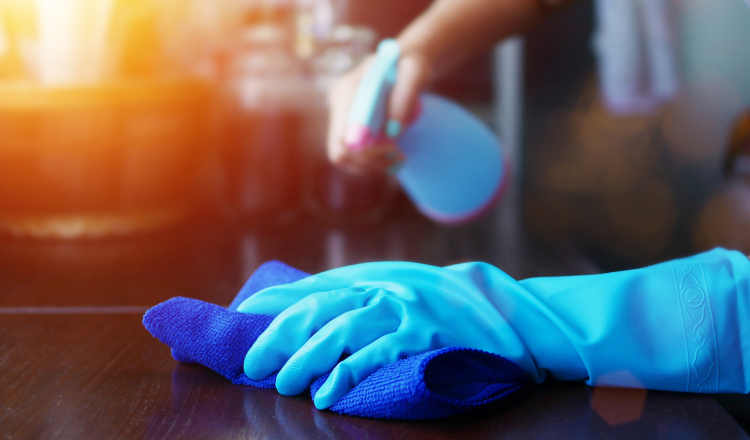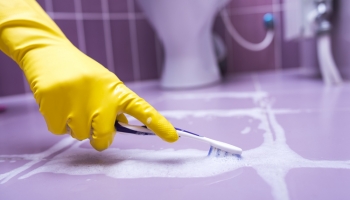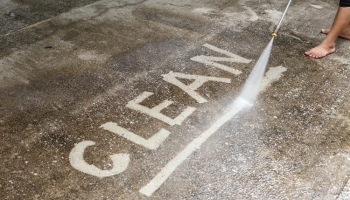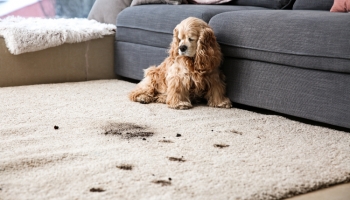 Now more than ever, we’re all aware of how important it is to keep our homes clean and sanitized. While cleaning removes dust, dirt and debris, disinfecting our homes can help keep all those in our dwelling healthy and whole. Sanitizing our home regularly can safeguard us from coronavirus.
Now more than ever, we’re all aware of how important it is to keep our homes clean and sanitized. While cleaning removes dust, dirt and debris, disinfecting our homes can help keep all those in our dwelling healthy and whole. Sanitizing our home regularly can safeguard us from coronavirus.
We Can Help Prevent Sickness through Practical Steps
- Avoid exposure to the COVID-19 virus.
- Wash your hands frequently using soap and water for at least 20 seconds.
- If you don’t have access to soap and water, use an alcohol-based hand sanitizer.
- Don’t touch your eyes, nose, or mouth.
- Stay home if you are sick, and stay away from people who are ill.
- Clean and sanitize objects and surfaces that you touch frequently.
- Ventilate your home by opening the windows to allow fresh air to fill your dwelling.
How to Keep Your Family Safe from the Coronavirus
Wash Like You Mean It
When you wash your hands with soap and water, scrub them like you have something sticky on your hands, and you really need to work hard to get it off. Dry your hands with a paper towel, and discard it after using it.
Put Hydrogen Peroxide to Work
This is a simple, effective way to help keep you and your loved ones safe from the coronavirus. Use undiluted hydrogen peroxide to disinfect your home from viruses such as rhinovirus or COVID-19. Pour it into a spray bottle and spray it on hard surfaces in your home. It takes 6-8 minutes for it to cleanse rhinovirus, which causes the common cold. Let it sit on your hard surfaces for at least 5 minutes before wiping it off. It can be used on metal—including stainless steel, but it can discolor clothes, so be careful while using it.
Use Unexpired Household Bleach
Old bleach loses its potency, so check the date on your household bleach and verify it’s not expired. Make a solution of 4 teaspoons of bleach per quart of water. Put a new pair of disposable gloves on, and use the bleach to sanitize. Let the bleach stay on the surface for at least 10 minutes before wiping it off with a clean paper towel. Be careful not to use bleach on metal surfaces including stainless steel in your home as it could harm them.
Use Isopropyl Alcohol to Disinfect
Isopropyl alcohol with at least 70% alcohol is effective to use against COVID-19. Clean the surface with soap and water, then apply the undiluted alcohol solution. Let it sit on the surface for at least 30 seconds before wiping it off.
What Not to Use to Disinfect Your Home
The experts give us clear direction on what to use to know we are sanitizing our homes properly at this time. Unfortunately, there are still some myths about what works. Here’s what not to use:
- Understand that there is no evidence that vinegar can kill the coronavirus.
- There is no evidence tea tree oil will kill COVID-19.
- Don’t expect that vodka can kill coronavirus. Its alcohol content isn’t high enough.
- Don’t make your own hand sanitizer and get a false sense of security.
Recurrent Household Cleaning Tips
Cleaning visible dirt off surfaces, then disinfecting them will help prevent the spread of COVID-19 in your home and community. Practice recurrent cleaning of frequently touched surfaces like doorknobs, light switches, appliance handles, toilets, sinks, and more. Disinfect these surfaces after cleaning them. Here are some helpful tips on how to clean your home’s surfaces to maintain your good health during this pandemic and beyond.
Electronics
For cell phones, touch screens, remote controls, and even your home’s thermostats, use alcohol-based spray with at least 70% alcohol in it to disinfect touch screens. Dry the electronics completely after disinfecting them.
Non-porous Surfaces
Hard surfaces that are non-porous include things like stainless steel appliances, kitchen counters, tables and chairs, sinks, commodes, railings, light switch plates, doorknobs, toys, computer keyboards, and remote controls.
- Put a fresh, clean pair of disposable gloves on before cleaning.
- Clean with soap and water to remove visible debris and stains.
- Rinse with water and dry it with a paper towel.
- Apply disinfectant, and to kill the virus. Be sure the surface stays wet for at least 10 minutes before you wipe it off with a clean paper towel.
- Rinse the area with clean water and allow it to air dry. It’s important to rinse off disinfectant, particularly in the kitchen where you will be preparing food.
- Remove your gloves and throw them away.
- Wash your hands after cleaning and disinfecting your home.
Soft Porous Materials
Soft materials are things like your home’s carpeting, towels, clothes, couches, chairs, bedding, and toy stuffed animals.
- Put on a pair of clean, disposable gloves.
- Place soft, porous materials in a fabric bag or pillowcase.
- Wash them in your washing machine with hot water and detergent with color safe bleach in it.
- Dry on high heat.
- Clean and disinfect your laundry basket or use a bag liner that’s disposable to gather dirty clothes.
- Always dispose of your gloves after use.
If Someone in Your House or Family Is Fighting COVID-19
If you or a loved one exhibit symptoms, quarantine the ill person into a room or section of your home. You will need to seriously boost your cleaning frequency and disinfect your dwelling often to keep others from getting the virus.
Stephen Thomas, M.D., Chief of Infectious Diseases and Director of Global Health at Upstate Medical University in Syracuse, NY, said, “Clean high-traffic areas that get touched frequently, such as kitchen counters and bathroom faucets, three times a day with a product that kills viruses.”
At Bliss Maid Services, we understand how important cleaning is to your health. We are offering disinfecting cleaning services as well as our popular deep cleaning and recurring cleaning services.



